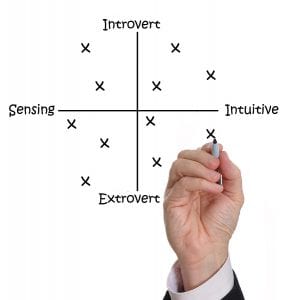Employee personality tests have been part of our culture for almost a century. It’s certainly worth questioning whether these employee personality tests are better than adequate job descriptions, and objective measures of the ability to perform the job’s essential functions. Strength tests objectively measure a person’s ability to pull, push or lift. Mathematical tests objectively measure the ability to compute. Writing tests objectively measure the ability to communicate. Do personality tests offer a similar level of insight?
Following is a summary of an article by Nathan Newman, a writer and professor who teaches criminal justice and sociology at the City University of New York.
The Initial Purpose of Employee Personality Tests
When employee personality tests initially started gaining popularity back in the 1930’s, their primary purpose was to exclude pro-union candidates from the hiring process. Companies effectively used the tests as a means to bypass new legislature banning the blacklisting of pro-union employees. The personality tests in use today have the same ultimate goal: to root out employees with “undesirable” beliefs. However, employee prescreening is nothing like what it used to be.
A Growing Industry
At this point, personality testing has evolved into a massive industry, valued at over $3 billion in 2019. Four out of five Fortune 500 companies use such tests as part of their prescreening process. There is a layer of creepiness associated with these tests that should not be ignored, however. For example, if you are an interviewee during an online interview, your facial expressions, voice and many other characteristics could be analyzed by artificial intelligence. Many businesses use such AI to filter out undesirable employees before even giving them the chance to be interviewed by a human. The ongoing pandemic has only accelerated such uses of the technology, despite the fact that many businesses have been charged with violation of anti-discrimination laws for using them.
The Brewing Storm in Employee Personality Testing
As you can see, the history of employee personality testing is very unclean. There is ongoing skepticism that the National Labor Relations Board (NLRB) could ban personality testing based on blowback from unions across the country. If this skepticism comes to a head and widespread change is enforced, businesses who relied on employee personality testing may have to brace for a massive quantity of back-pay orders to employees who were unjustly excluded from the hiring process.
James P. Randisi, President of Randisi & Associates, Inc., has since 1999 been helping employers protect their clients, workforce and reputation through implementation of employment screening and drug testing programs. This post does not constitute legal advice. Randisi & Associates, Inc. is not a law firm. Always contact competent employment legal counsel. Mr. Randisi can be contacted by phone at 410.494.0232 or Email: info@randisiandassociates.com or the website at randisiandassociates.com



